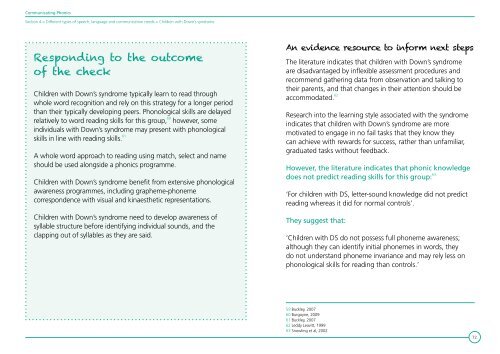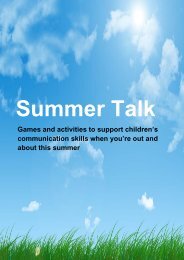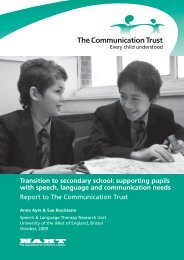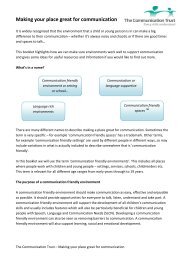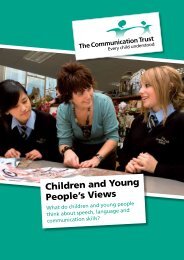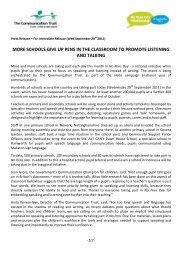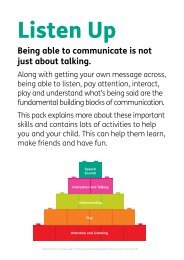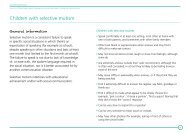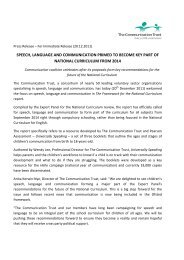Communicating Phonics - The Communication Trust
Communicating Phonics - The Communication Trust
Communicating Phonics - The Communication Trust
You also want an ePaper? Increase the reach of your titles
YUMPU automatically turns print PDFs into web optimized ePapers that Google loves.
<strong>Communicating</strong> <strong>Phonics</strong>Section 4 > Different types of speech, language and communication needs > Children with Down’s syndromeResponding to the outcomeof the checkChildren with Down’s syndrome typically learn to read throughwhole word recognition and rely on this strategy for a longer periodthan their typically developing peers. Phonological skills are delayedrelatively to word reading skills for this group, 60 however, someindividuals with Down’s syndrome may present with phonologicalskills in line with reading skills. 61A whole word approach to reading using match, select and nameshould be used alongside a phonics programme.Children with Down’s syndrome benefit from extensive phonologicalawareness programmes, including grapheme-phonemecorrespondence with visual and kinaesthetic representations.Children with Down’s syndrome need to develop awareness ofsyllable structure before identifying individual sounds, and theclapping out of syllables as they are said.An evidence resource to inform next steps<strong>The</strong> literature indicates that children with Down’s syndromeare disadvantaged by inflexible assessment procedures andrecommend gathering data from observation and talking totheir parents, and that changes in their attention should beaccommodated. 62Research into the learning style associated with the syndromeindicates that children with Down’s syndrome are moremotivated to engage in no fail tasks that they know theycan achieve with rewards for success, rather than unfamiliar,graduated tasks without feedback.However, the literature indicates that phonic knowledgedoes not predict reading skills for this group: 63‘For children with DS, letter-sound knowledge did not predictreading whereas it did for normal controls’.<strong>The</strong>y suggest that:‘Children with DS do not possess full phoneme awareness;although they can identify initial phonemes in words, theydo not understand phoneme invariance and may rely less onphonological skills for reading than controls.’59 Buckley, 200760 Burgoyne, 200961 Buckley, 200762 Leddy Leavitt, 199963 Snowling et al, 200272


